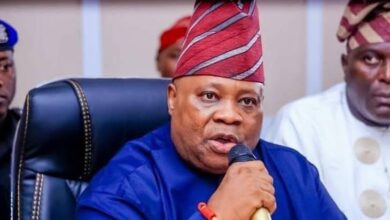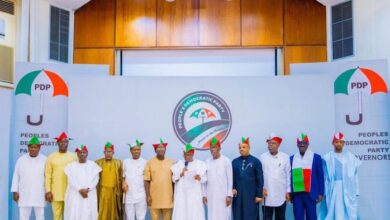National Power Grid Collapses Again, Plunging Nigeria Into Darkness

Nigeria experienced another national grid collapse on Tuesday morning, just hours after a similar incident on Monday evening, leaving much of the country in darkness and sparking widespread concerns about the stability of the electricity supply.
The first collapse occurred at around 6:18 p.m. on Monday, reducing power generation from 3.87 gigawatts at 5 p.m. to 3.56GW by 6 p.m., and eventually to 0.00GW by 7 p.m., according to reports. By Tuesday morning, the situation worsened when the grid collapsed again at 9:17 a.m., cutting electricity supply across the country. By 10 a.m., power generation had dropped to 0.00 megawatts (MW), plunging the nation into another round of total blackout.
Several power distribution companies (DisCos) confirmed the grid collapse. The Eko Electricity Distribution Company (EKEDC) issued a public statement acknowledging the outage, saying, “Dear Valued Customer, kindly be informed that there was a system collapse at 09:17hrs, which has resulted in a loss of power supply across our network. We are currently working with our partners and hope for a speedy restoration of the grid. We will keep you updated as soon as the power supply is restored.”
Despite this reassurance, the situation remains dire, as many parts of the country are now enduring back-to-back blackouts. Efforts to restore electricity across regions are ongoing, but the repeated collapses highlight persistent issues with the national grid’s resilience and reliability.
The Transmission Company of Nigeria (TCN), which manages the national grid, has not provided an official statement regarding the cause of the latest collapses. Calls and messages to Ndidi Mbah, the TCN spokesperson, went unanswered. Meanwhile, power supply allocations to DisCos had fallen drastically, with Abuja receiving just 44MW, Benin 35MW, Eko 62MW, Enugu 40MW, Ibadan 85MW, Ikeja 72MW, Jos 10MW, Kaduna 15MW, Kano 20MW, Port Harcourt 23MW, and Yola 11MW before the complete shutdown.
The double collapse within a 24-hour period has raised alarm among electricity consumers and stakeholders. Princewill Okorie, the Executive Director of the Electricity Consumer Protection Advocacy Centre, expressed concern over the grid’s repeated failures, despite rising electricity tariffs. Okorie lamented the burden on consumers, especially those without meters, who will still be billed for electricity during periods of outage. He also questioned the effectiveness of the government’s efforts to address the persistent grid instability.
The collapse of Nigeria’s electricity grid has been a recurrent issue, exacerbated by inadequate infrastructure, insufficient investment, and technical inefficiencies. Each collapse disrupts businesses, homes, and essential services, further straining the economy. These incidents also highlight the country’s reliance on a single, fragile grid for power distribution, with no effective backup systems in place.
Experts have long called for urgent reforms in Nigeria’s power sector, including upgrading the grid infrastructure, improving transmission lines, and encouraging private-sector participation in power generation. Despite efforts by the government to privatize the electricity sector and improve service delivery, grid collapses remain a major challenge, stifling economic growth and eroding public confidence in the country’s energy reforms.
As Nigerians continue to face erratic power supply, many are left questioning the progress of promised solutions. The most recent collapses have renewed calls for the government to prioritize energy stability by investing in grid modernization, renewable energy alternatives, and reliable power sources that can mitigate future collapses.
The repeated grid failures not only impact the daily lives of Nigerians but also affect the country’s businesses, industries, and digital economy, with severe economic repercussions. As stakeholders await a detailed explanation from TCN and relevant authorities, the public continues to bear the brunt of a long-standing issue that hampers progress in Africa’s largest economy.



